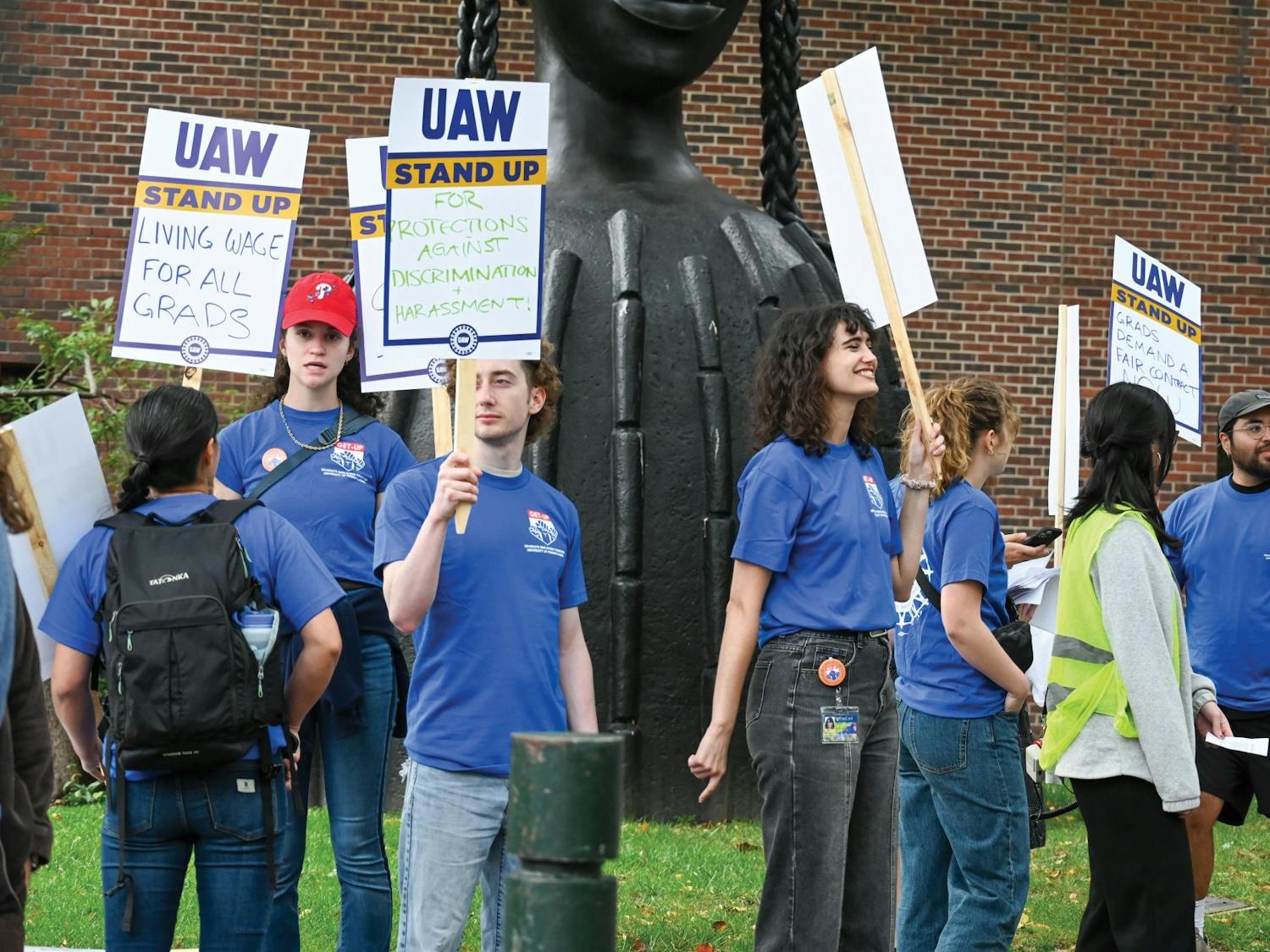Penn will hold off on joining a monitoring group until certain conditions are met. University President Judith Rodin agreed yesterday to accept in full the recommendations that the Ad Hoc Committee on Sweatshop Labor released this week. The committee recommended that Penn join one or both of the factory-monitoring organizations for school-logo apparel -- the Fair Labor Association and the Worker Rights Consortium -- if the groups agree to give greater representation on their boards of directors to academic institutions. Penn is currently a member of neither organization after withdrawing from the FLA two weeks ago. Members of Penn Students Against Sweatshops demanded in a nine-day sit-in last month that the University leave the FLA in favor of the WRC, which they believe is less beholden to corporate interests. The WRC currently has about 12 schools on board, including five that joined this week. The FLA has more than 130 colleges and universities among its members. Rodin said yesterday that she is sending letters to both groups requesting greater representation for colleges and universities and "would be very surprised if they didn't seek our response readily." "Certainly one representative on the FLA is not sufficient, and so we would like to see their response," she said. "And the same from the WRC, that indeed has more college and university representation, but not in the committee's opinion -- and not in mine -- a sufficient amount." The fledgling WRC currently plans to allocate about one fourth of its board seats to academic institutions. In the recommendations, the committee noted that it hopes for a speedy response from the WRC and the FLA, especially because the WRC founding conference will be on April 7. "I agree, as you suggest, that it would be in [workers'] best interests if we could work with both the Fair Labor Association and the Worker Rights Consortium if they respectively agree to balanced representation of colleges and universities on their governing boards," Rodin wrote in a letter to Howard Kunreuther, the committee's chairman. In the letter, Rodin said she will ask the committee for further advice on how to proceed after receiving responses from the FLA and WRC. Rodin's decision comes after several weeks marked by anti-sweatshop protests at schools across the country. More than 300 students at Yale University rallied on Tuesday, asking their administration to leave the FLA and join the WRC. PSAS member Susan Casey, a College of General Studies student and member of the Penn task force, said she was not surprised by Rodin's decision to accept all of the committee's recommendations. However, Casey emphasized that the committee's work was just the first step in a long-term process. She said she would prefer that the University join the WRC and withhold its membership from the FLA until the FLA agrees to more than just changes in the way it is controlled. "There are so many issues that are more important," she said. "I don't know that I'm necessarily happy about the fact that she is taking up these recommendations." Casey added committee members' decisions to vote for the group's final report "doesn't necessarily mean that everybody's real happy with it," but that she thought the code of conduct for apparel manufacturers included in the committee's report was very strong. Religious Studies Department Chairman Stephen Dunning, another committee member, said he was pleased by Rodin's decision, noting that the committee worked very hard to create its recommendations. Dunning said the long-term recommendations of the committee, especially its plan to set up a committee of students, faculty and staff members to "monitor the monitors," were more important than its short-term suggestions. "Both organizations look like they are subject to being controlled by interests" other than the factory workers, he said -- the FLA by corporations and the WRC by the unions that helped start it. "The groups present very different advantages," Dunning noted, adding that committee members all agreed on the basic ideas behind ending sweatshop abuses but had specific concerns about each monitoring group's effectiveness. The code of conduct included as a part of the committee's final report will undergo a period of public review for comment through March 22 and will be formally presented to University Council by Rodin on March 24.
The Daily Pennsylvanian is an independent, student-run newspaper. Please consider making a donation to support the coverage that shapes the University. Your generosity ensures a future of strong journalism at Penn.
Donate







